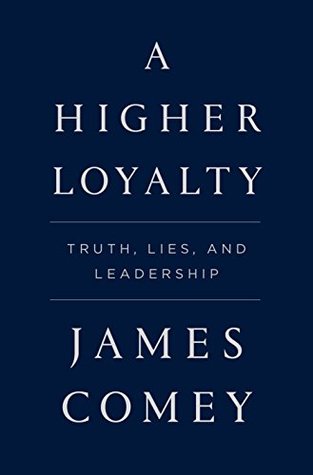More on this book
Community
Kindle Notes & Highlights
Read between
January 12 - February 7, 2019
Ethical leaders do not run from criticism, especially self-criticism, and they don’t hide from uncomfortable questions. They welcome them.
Aditya Bhambri liked this
Listening to others who disagree with me and are willing to criticize me is essential to piercing the seduction of certainty.
I have learned that ethical leaders lead by seeing beyond the short-term, beyond the urgent, and take every action with a view toward lasting values.
But those values—like truth, integrity, and respect for others, to name just a few—serve as external reference points for ethical leaders to make decisions, especially hard decisions in which there is no easy or good option.
Ethical leaders choose a higher loyalty to those core values over their own personal gain.
Aditya Bhambri liked this
As a leadership principle, if leaders don’t tell the truth, or won’t hear the truth from others, they cannot make good decisions, they cannot themselves improve, and they cannot inspire trust among those who follow them.
Ethical leaders can mold a culture by their words and, more important, by their actions, because they are always being watched.
A commitment to integrity and a higher loyalty to truth are what separate the ethical leader from those who just happen to occupy leadership roles.
Keep your friends close, but your enemies closer. —AL PACINO (AS MICHAEL CORLEONE), THE GODFATHER, PART II
“It is easy in the world to live after the world’s opinion; it is easy in solitude to live after our own; but the great man is he who in the midst of the crowd keeps with perfect sweetness the independence of solitude.”
But sometimes it isn’t when we face death ourselves, but rather when death takes away those we love the most, that we really learn about just how short our time on earth is and why what we do with that time matters.
He who permits himself to tell a lie once, finds it much easier to do it a second and third time, till at length it becomes habitual; he tells lies without attending to it, and truths without the world’s believing him. This falsehood of the tongue leads to that of the heart, and in time depraves all its good dispositions. —THOMAS JEFFERSON
The danger in every organization, especially one built around hierarchy, is that you create an environment that cuts off dissenting views and discourages honest feedback. That can quickly lead to a culture of delusion and deception. And in a leader, the tendency of too much confidence to swamp humility can lead to a dangerous self-indulgence at the expense of others.
It ain’t what you don’t know that gets you in trouble. It’s what you know for sure that just ain’t so. —MARK TWAIN
one of the most powerful and disconcerting forces in human nature—confirmation bias. Our brains have evolved to crave information consistent with what we already believe. We seek out and focus on facts and arguments that support our beliefs. More worrisome, when we are trapped in confirmation bias, we may not consciously perceive facts that challenge us, that are inconsistent with what we have already concluded. In a complicated, changing, and integrated world, our confirmation bias makes us very difficult people. We simply can’t change our minds.
The supreme quality for leadership is unquestionably integrity. Without it, no real success is possible, whether it is on a section gang, a football field, in an army, or in an office. —DWIGHT D. EISENHOWER
great leaders are (1) people of integrity and decency; (2) confident enough to be humble; (3) both kind and tough; (4) transparent; and (5) aware that we all seek meaning in work. We would also teach them that (6) what they say is important, but what they do is far more important, because their people are always watching them. In short, we would demand and develop ethical leaders.
A leader who screams at his employees or belittles them will not attract and retain great talent over the long term.
True listening is actually that period of silence and allowing someone’s words to reach your conscious brain, but it also includes something else that’s a little weird: with your posture, your face, and your sounds, you signal to someone, “I want what you have, I need to know what you know, and I want you to keep telling me the things you’re telling me.”
“You are not only responsible for what you say, but also for what you do not say.”


